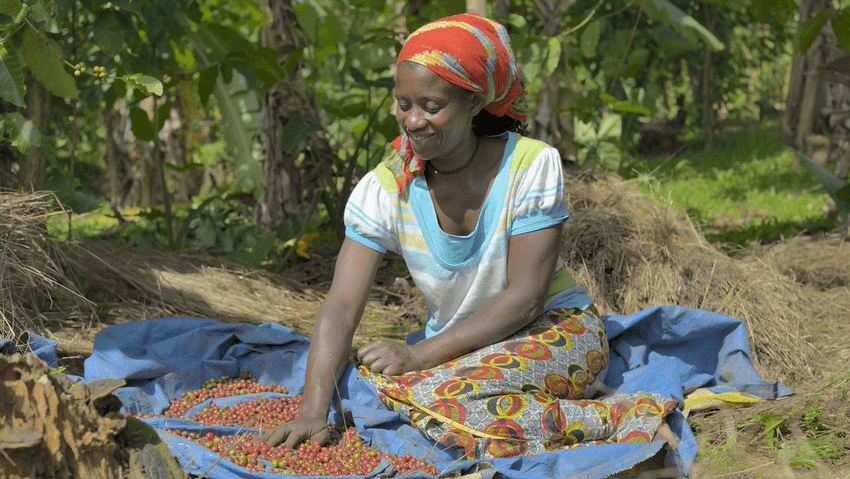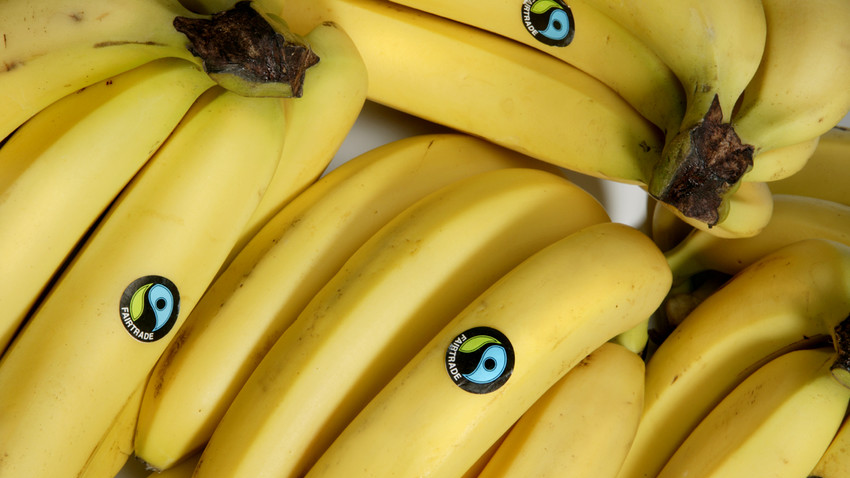What does it mean when a product is labelled Fairtrade? And does that mean the product is also organic?
Fairtrade and organic are two separate certifications, however many products carry both labels. Read on to find out the difference between the two.
What does Fairtrade mean?
Fairtrade addresses the injustices of conventional trade, which traditionally discriminates against the poorest farmers and workers. Fairtrade requires companies to pay sustainable prices to over 1.66 million disadvantaged farmers and workers across 73 countries.
Here are four key things you need to know about Fairtrade.
The Fairtrade Premium
On top of the price of the product, Fairtrade farmers and workers receive an extra sum of money called the Fairtrade Premium, which they can invest in improving their business or projects of the community’s choice such as education, housing and protecting the local environment.
The Minimum Price
Farmers and workers benefit from the Fairtrade Minimum Price when the market price for their produce falls. When the market price is higher than the Fairtrade Minimum Price, producers will receive the higher market price. This helps farmers to secure stable, fair prices.
Fairtrade Standards
Fairtrade sets social, economic and environmental standards. For farmers and workers, the Standards include protection of workers’ rights, environmentally sound farming practices and criteria to ensure product quality. For companies, these Standards include payment no lower than the Fairtrade Minimum Price and an additional Fairtrade Premium.
Thousands of grassroots campaigners
There is an incredible movement across the UK of thousands of Fairtrade schools, communities and universities. Find out how to get involved.
What does organic mean?
Organic farmers work towards a strict set of standards that aim to keep soils, ecosystems and people healthy. If a product is labelled as ‘organic’ that means it’s been certified by a third party organisation such as Soil Association.
Here’s what organic certification means in a snapshot:
Fewer pesticides
Farmers who grow organic produce use fewer pesticides (chemicals which kill insects and other pests such as weeds and fungal diseases). Pesticides can reduce biodiversity and pollute the water and soil. As well as being bad for the earth, chemicals can harm the health of farmers and workers, causing mild symptoms such as headaches and rashes, and long-term problems in the form of nerve diseases and liver damage. Instead, farmers employ natural methods to control pests, such as encouraging birds and beetles to eat plant-eating insects like aphids, slugs and caterpillars.
Avoids artificial fertilisers
Organic farming avoids using artificial fertilisers, which can pollute waterways.
Animal welfare
Another important strand of organic farming looks at animals’ living conditions; animals must have access to outside pasture, eat non-GMO and as natural as possible feed, and must not routinely be given antibiotics. Read more about organic certification’s animal welfare standards.
No GMO
The use of genetically modified products are prohibited in organic food production.
Can a product be both Fairtrade and organic?
Yes! Lots of popular products are certified both Fairtrade and organic.
Fairtrade trains and supports farmers to go organic to increase the value of their products and protect their local environment. Local Fairtrade officers train farmers to reduce their use of harmful pesticides and offer advice on adopting organic pest control and natural fertilisers.
You can buy tea, coffee, chocolate, quinoa, bananas and more with both certifications.
Check out our favourite Fairtrade and Organic products

